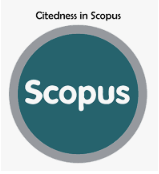Implementasi Model Pembelajaran Kooperatif Tipe Student Team Achievement Division Dalam Menguatkan Karakter Tanggung Jawab Peserta Didik Pada Mata Pelajaran Ilmu Pengetahuan Alam dan Sosial (IPAS) MIN 4 Tulungagung
DOI:
https://doi.org/10.56404/tej.v2i1.89Keywords:
STAD Learning Model, Responsible Character, IPASAbstract
This research is motivated by the character of responsibility which is an important character. According to the data that has been obtained, MIN 4 Tulungagung has implemented a cooperative approach, one of which is the (STAD) Model. With this model, the good character that emerges is the character of responsibility. The research focus in writing this thesis is how to plan, implement and evaluate the model (STAD). The aim of this research is to describe in depth the planning, implementation and evaluation of the learning model (STAD) to strengthen the character of responsibility. This research uses a qualitative descriptive research method. Data was obtained through interviews, observation and documentation. Data analysis uses data condensation, data presentation, and drawing conclusions. Test the validity of the data using a credibility test which includes increased persistence and triangulation. The results of this research show that the STAD model planning used includes activities for planning the learning process, preparing competent staff and teachers who already have a teacher certification certificate. For the implementation stage of the STAD or discussion model, the STAD steps are followed, namely: the teacher presents lessons, forms discussion groups, gives discussion group assignments and individual assignments, provides learning evaluations and awards, and finally the teacher and students draw conclusions about the learning. There are two stages of evaluating the STAD learning model, namely the teacher evaluates the students' abilities and evaluates the students' responsible character through the STAD model.
References
H. Siddik, “HAKIKAT PENDIDIKAN ISLAM Hasbi,” Al-Riwayah J. Kependidikan, vol. Volume 8, no. 1, 2016.
N. I. Aunillah, “Panduan menerapkan pendidikan karakter di sekolah,” 2019.
M. R. Afandi, “Pengaruh Model Pembelajaran Kooperatif Tipe STAD (Student Teams Achievement Division) Terhadap Sikap Disiplin dan Tanggung Jawab Peserta Didik pada Mata Pelajaran Akidah Akhlak Kelas VIII MTSN 7 Tulungagung,” 2021.
T. Tayeb, “Analisis dan manfaat model pembelajaran,” AULADUNA J. Pendidik. Dasar Islam, vol. 4, no. 2, pp. 48–55, 2017.
N. A. Putri, “Pengaruh Model Pembelajaran Kooperatif Tipe Stad (Students Teams Achievement Division) Terhadap Hasil Belajar Ips Peserta Didik Kelas V Min 6 Bandar Lampung Tahun Ajaran 2016.” Iain Raden Intan Lampung, 2017.
T. Syaputri, “Pengaruh Model Pembelajaran STAD terhadap Hasil Belajar Siswa Mata Pelajaran Bahasa Indonesia di Kelas V MIN Glugur Darat II Kecamatan Medan Timur TA 2017/2018.” Universitas Islam Negeri Sumatera Utara Meddan, 2018.
A. Hidayatullah, “Alwasim Al-Qur’an Tajwid Kode Transliterasi Per Kata Terjemah Per Kata,” Jawa Barat Cipta Bagus Segara, 2013.
R. E. Slavin, “Cooperative learning,” Rev. Educ. Res., vol. 50, no. 2, pp. 315–342, 1980.
H. T. Taniredja, “Model-model pembelajaran inovatif dan efektif,” 2013.
F. N. Syamsu, I. Rahmawati, and S. Suyitno, “Keefektifan model pembelajaran stad terhadap hasil belajar matematika materi bangun ruang,” Int. J. Elem. Educ., vol. 3, no. 3, pp. 344–350, 2019.
I. Panigoro, “Pelaksanaan bimbingan berkelanjutan dalam upaya meningkatkan kompetensi guru menyusun rencana pelaksanaan pembelajaran di SDN 01 Popayato,” Aksara J. Ilmu Pendidik. Nonform., vol. 4, no. 2, pp. 145–158, 2020.
A. Suprijono, Cooperative learning: teori & aplikasi PAIKEM. Pustaka pelajar, 2009.
F. Y. Habsyi, “Pengaruh fasilitas belajar terhadap prestasi belajar siswa SMA Nusantara Tauro,” J. Pendidik. Dan Ekon., vol. 2, no. 1, pp. 13–22, 2020.
F. Novauli, “Kompetensi guru dalam peningkatan prestasi belajar pada SMP Negeri Dalam Kota Banda Aceh,” J. Adm. Pendidik., vol. 3, no. 1, pp. 45–67, 2015.
T. Nurlina and N. Hanifah, “PENERAPAN MODEL KOOPERATIF TIPE STUDENT TEAM ACHIEVEMENT DIVISION (STAD) DALAM MENINGKATKAN KARAKTER TANGGUNG JAWAB SISWA,” J. Pena Ilm., vol. 3, no. 2.
Y. Ramafrizal and T. Julia, “Kajian Model Pembelajaran Kooperatif Tipe STAD (Student Teams Achievement Division) Dalam Upaya Meningkatkan Efektifitas Proses Belajar Mengajar Akuntansi,” Oikos J. Kaji. Pendidik. Ekon. dan Ilmu Ekon., vol. 2, no. 2, pp. 133–145, 2018.
M. S. Sumantri, “Strategi pembelajaran: teori dan praktik di tingkat pendidikan dasar,” 2015.
F. Akhmad, “Penerapan Model Pembelajaran Kooperatif Tipe Student Teams–Achievement Division (Stad) Untuk Meningkatkan Hasil Belajar Siswa Pada Mata Pelajaran Pemeliharaan Mesin Kendaraan Ringan,” J. Pendidik. Vokasi Otomotif, vol. 2, no. 2, pp. 35–48, 2020.
E. Retnowati, “Penerapan pembelajaran kooperatif tipe STAD untuk meningkatkan karakter disiplin tanggung jawab serta hasil belajar IPA.” Program Studi Pendidikan Guru Sekolah Dasar FKIP-UKSW, 2017.
N. E. H. Fauziyah, “Dampak Positif Evaluasi Pembelajaran terhadap Prestasi Belajar Siswa Kelas 4 SD Negeri Blotongan 03 Jawa Tengah Tahun Pelajaran 2018/2019,” J. Rev. Pendidik. dan Pengajaran, vol. 2, no. 1, pp. 145–152, 2019.
D. Nastiti, “Implementasi karakter tanggung jawab dalam pembelajaran ppkn melalui model stad (student team achievement divisions),” Pionir J. Pendidik., vol. 6, no. 2, 2017.
















